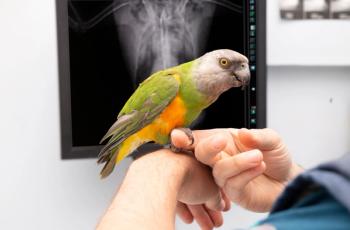
Salmonella outbreak connected to pet turtles
The CDC announced 3 Salmonella outbreaks in 16 states, with two linked to red-eared slider turtles
Sixty-six cases of Salmonella were reported across 16 states with apparent links to pet turtles. Fifty-five percent of those infected by the outbreak are children 10 years old or younger, with 11 hospitalized but no reported deaths. The states affected are Arizona, California, Georgia, Indiana, Kentucky, Massachusetts, Maryland, Michigan, North Carolina, New Jersey, New Mexico, New York, Pennsylvania, Texas, Virginia, and Vermont.
Three of those infected by the outbreak are connected to purchasing a small turtle from myturtlestore.com.1 Currently,2 there is a federal law that bans the sale and distribution of turtles less than 4 inches long as pets. However, the CDC warned these turtles can be found illegally at roadside stands, flea markets, and even some stores.3
According to the Center for Infectious Disease Research and Policy at the University of Minnesota, the three strands connected to the outbreak, Salmonella Sandiego, Salmonella Pomona, and Salmonella Poona, are considered rare.1
Salmonella Sandiego and Salmonella Pomona are connected to the cases reported in the Northeast and Southeast while Salmonella Poona is connected to the patients in Midwest and Southwestern states.
The CDC also warns that pet turtles of any size can carry Salmonella germs despite their habitats looking clean and healthy. At this time, the CDC’s PulseNet system Is helping to identify cases that could be part of this outbreak.
Reference
- Pet turtles linked to three Salmonella outbreaks in 16 states. CIDRAP. Accessed July 28, 2022. https://www.cidrap.umn.edu/news-perspective/2012/03/pet-turtles-linked-three-salmonella-outbreaks-16-states
- CFR - code of federal regulations title 21. Accessed July 28, 2022. https://www.accessdata.fda.gov/scripts/cdrh/cfdocs/cfcfr/CFRSearch.cfm?fr=1240.62&SearchTerm=turtles%5d
- CDC. Salmonella outbreak linked to small turtles. Centers for Disease Control and Prevention. Published July 27, 2022. Accessed July 28, 2022. https://www.cdc.gov/salmonella/stanley-07-22/index.html
Newsletter
From exam room tips to practice management insights, get trusted veterinary news delivered straight to your inbox—subscribe to dvm360.




